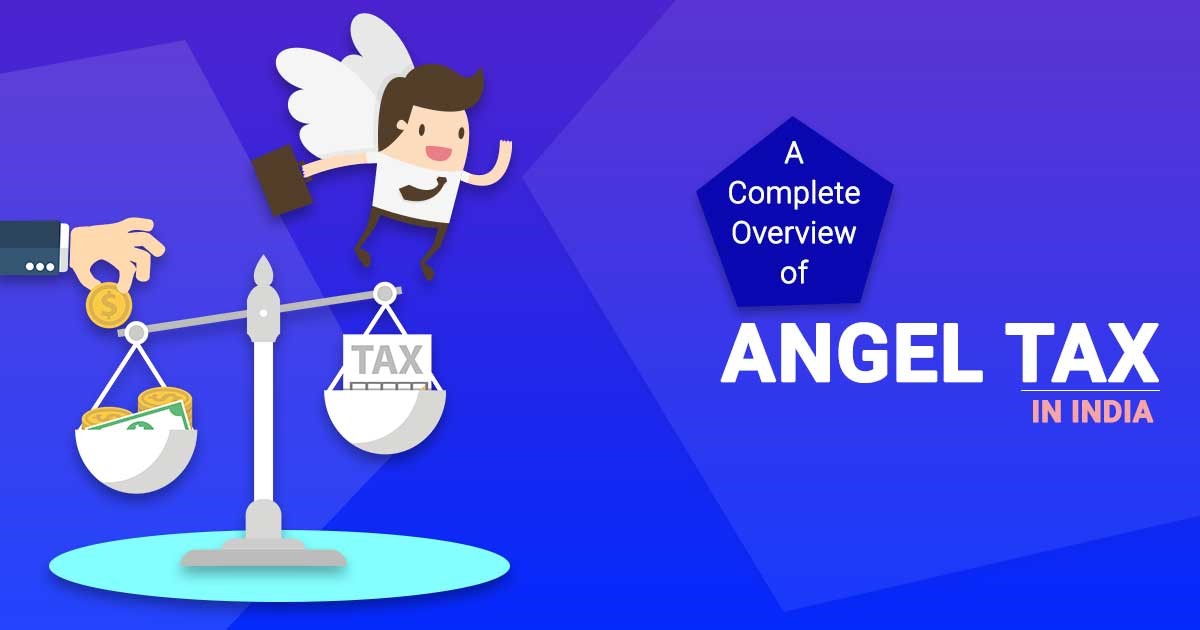Description

Disclaimer: Copyright infringement not intended.
Context
- The government proposed changes to the Angel Tax.
What is Angel Tax?
- Angel tax is a term used to refer to the income tax payable on capital raised by unlisted companies via issue of shares where the share price is seen in excess of the fair market value of the shares sold.
- The excess realization is treated as income and taxed accordingly.
- The tax was introduced in the 2012 Union Budget by then finance minister Pranab Mukherjee to arrest the laundering of funds. It has come to be called angel tax since it largely impacts angel investments in startups.
- Angel tax essentially derives its genesis from section 56(2)(viib) of the Income Tax Act, 1961. The finance act, 2012 introduced section 56(2)(viib) in the IT act which taxes any investment, received by any unlisted Indian company, valued above the fair market value by treating it as income. The investment in excess of fair value is characterised as ‘Income from other sources’ and the tax imposed on it is known as Angel Tax since it largely affects angel investors investing in startups.
.jpeg)
Who Is an Angel Investor?
- An angel investor is an individual with a high net worth willing to provide financial backing for small startups and entrepreneurs.
- Angel investors give financial assistance in exchange for ownership equity in the company.
- These investors provide more advantageous terms as compared to other lenders.
- Angel investors foster new startup ideas which would ultimately show good economic growth
Which investments fall under the ambit of Angel Tax?
- Angel tax is imposed only on investments made by a resident investor. It should be noted that angel tax is not applicable in case the investments are made by any non-resident or venture capital funds
Angel Tax Exemption
- Allaying the concerns of the startup community, the government has exempted investments made by domestic investors in companies approved by an inter-ministerial panel from Angel Tax.
- However, in order to qualify for angel tax exemption, the startup should meet certain criteria which are as follows:
- The paid-up capital and share premium of the startup should not exceed Rs. 10 crores after issuing shares.
- The startup should procure the fair market value certified by a merchant banker.
The investor should have a minimum net worth of Rs. 2 crores and the average income in the last 3 financial years should not be less than Rs. 50 lakh.
- The startup should have received approval from an 8-member inter-ministerial board for angel tax exemption.
- In order to simplify the compliance procedure, the government in a recent notification has done away with the requirements fair market value certificate issued by a merchant banker and approval from an inter-ministerial board.
- The eligible startup can simply request an Angel Tax exemption from the Department of Industrial Policy & Promotion (DIPP) with applicable supporting documents.
- The application of DIPP-recognised startups will be forwarded to CBDT (Central Board of Direct Taxes) along with the attached documents.
- CBDT has been mandated to accept or decline such an application within 45 days from the day of receipt.
What is the rate at which angel tax is computed?
- Angel Tax is levied at a rate of 30.9% on net investments in excess of the fair market value.
- So for example, if a startup receives 50 crores of investment by issuing 1 lakh shares at Rs.5000 each to an Indian investor and the fair market value is Rs.2000 per share i.e Rs.20 crore only, then the startup will have to pay angel tax on the amount in excess of the fair market value i.e Rs. 30 crore.
- Therefore, Angel Tax payable in this transaction will be 9.27 crore (30.9% on Rs.30 crore).

Changes proposed recently
- In a bid to assuage industry concerns, the Central Board of Direct Taxes (CBDT) also said that Rule 11UA under the Income Tax Act, which currently prescribes only two valuation methods for valuing shares for resident investors, would be amended to include five more valuation methods for non-resident investors.
- The RBI makes an annual payout to the government from the surplus income earned from investments and valuation changes on its foreign exchange holdings, including the dollar, and the fees it gets from printing currency notes. It is mandated to maintain a contingency risk buffer of within 5.5% to 6.5% of its balance sheet. The government is expecting the RBI to transfer a significantly higher dividend, which will help reduce its market borrowing. The dividend could bring in additional revenue of 0.2% of GDP, which could partly offset losses in bonds and cover for lower tax revenue and slower divestment.
|
PRACTICE QUESTION
Q. What is Angel Tax? Write a note on the criteria required in order to qualify for Angel Tax Exemption.
|
https://economictimes.indiatimes.com/news/economy/finance/rbi-dividends-to-modis-government-may-double-aiding-fiscal-gap/articleshow/100343519.cms













